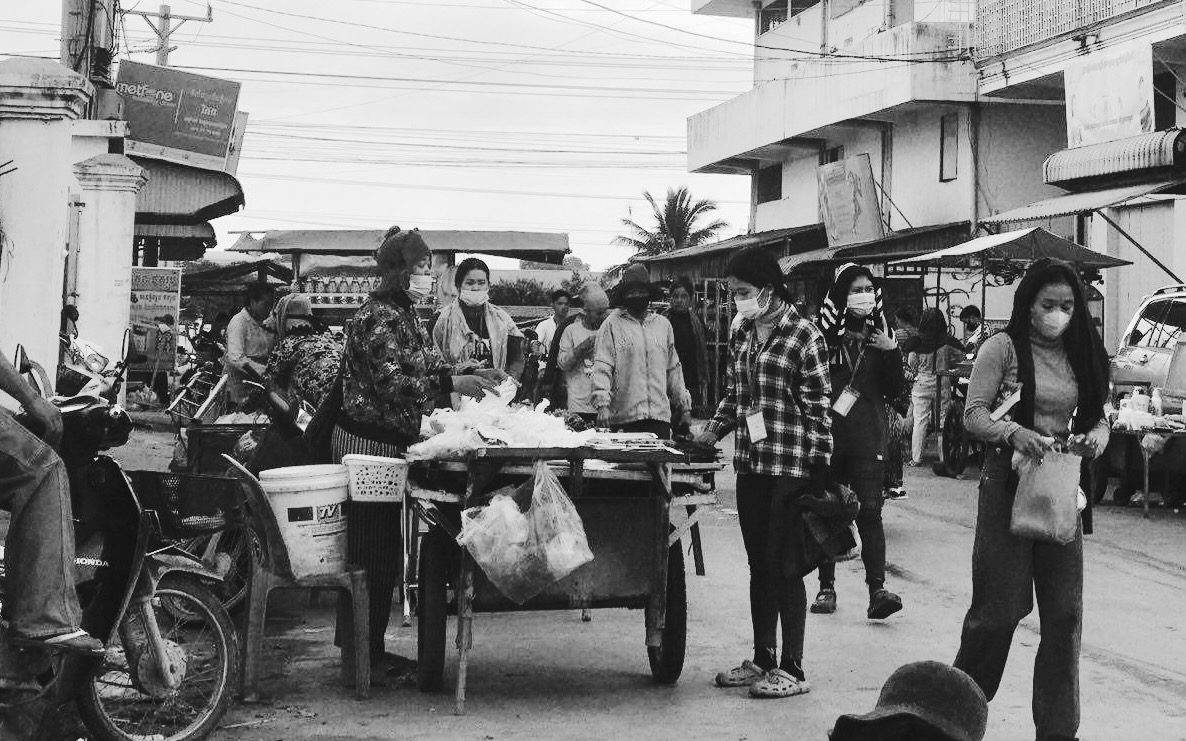Girls as young as 12 say they are working in garment factories in Kampong Speu, some with the knowledge of their employers and others with false identification documents issued by their local officials.
Labor Ministry spokesman Heng Sour, however, denied that anyone under 18 was working in Cambodia’s factories, and said they would be prosecuted if they were.
The Labor Law allows workers from the age of 15 with guardians’ consent, while children from aged 12 to 15 can still be legally hired for light work if it does not affect school attendance. Minors cannot work at night, from 10 p.m. to 5 a.m., unless they are at least 16 and it is in response to an accident, the law says.
One 17-year-old working in a factory along National Road 4 told VOD she began work at age 15 after her family paid the local commune chief $150 to raise her age in their official family-book records to 18.
She dropped out of school at Grade 8 and began work to help with her family’s debt, the girl said, adding that many girls in her village had done the same.
“Sometimes it is very difficult for us [and we have to] work overtime even when we do not want to,” she said, complaining of busy periods when workers are required to continue after-hours and are given as little as five minutes for lunch.
The girl’s 40-year-old mother said she had done the same thing in the past, dropping out of Grade 8 alongside her classmates and using her older sister’s identification to find work.
Another girl in the province, aged 13, said she was currently working at a factory where around 100 of the workers were underage. She had started at age 12, showing her real ID card to the employer, and sewed two labels onto 1,500 to 2,000 clothes a day working on her feet from 7 a.m. to 6 p.m.
The girl said that she had asked her family repeatedly to be allowed to go to work because she saw them struggle with debt, and her mother had finally agreed.
“I thought about it a lot. I didn’t want to go to school and wanted to help pay off my mother’s debt,” she said. “Sometimes I regret that I dropped out of school, but there are many people younger than me. They can do it, so I can also do it. At the factory, there are more than 100 people about my age.”
A reporter who observed a cluster of factories in the area saw around 500 workers commuting on Monday morning, and just over 100 appeared to be under 18, and roughly 50 appeared to be under 15. Management for the 13-year-old’s factory could not be reached by a phone number listed with the Garment Manufacturers Association in Cambodia.
The names and identifying details of minors who spoke to VOD are being withheld due to their potential involvement in illegalities, as required by the Press Law.
Labor group Central’s program manager Khun Tharo said falsely raising the age of workers on official documents was illegal, but acknowledged that it was often the families themselves who pleaded for the falsification. He added that education and health were among the concerns for children entering the workforce at a young age.
Better Factories Cambodia, an International Labor Organization project, noted in a 2019 report that many families face financial pressure to put their children to work.
“One challenge faced by the garment and footwear industries is that workers under the permitted working age of 15 years old may submit or borrow fake documents during recruitment,” the report says, while noting that regular employment is permitted from age 15 and light work from 12.
It adds that employers must keep a register of all minors who work for them, and the labor inspector must control this register.
“In order to avoid hiring underage workers, recruiters should give preference to job seekers with a mature appearance and should cross check documents to ensure that they are not falsified or borrowed,” the report says.
Kampong Speu provincial governor Vei Samnang denied that officials were taking money in exchange for falsifying documents, even if gift-giving was culturally common.
“This is not the case. If you are Khmer, you understand, and usually the farmers always send coconuts and palms when visiting, or if they are in Phnom Penh, they send bread. No one takes money from anywhere. It’s sentiment only.”
Samnang added that he was not aware of child labor in garment and footwear factories, and the government was opposed to it.
“As a Cambodian you should know, our country is not a developed country with a prosperous life that has never had war,” he said.
Cambodian Confederation of Unions president Rong Chhun said he had no statistics on the number of cases, but believed it was common across the country.
 This article is produced with the financial support from Rosa-Luxemburg-Stiftung in Southeast Asia via its Hanoi office.
This article is produced with the financial support from Rosa-Luxemburg-Stiftung in Southeast Asia via its Hanoi office.












